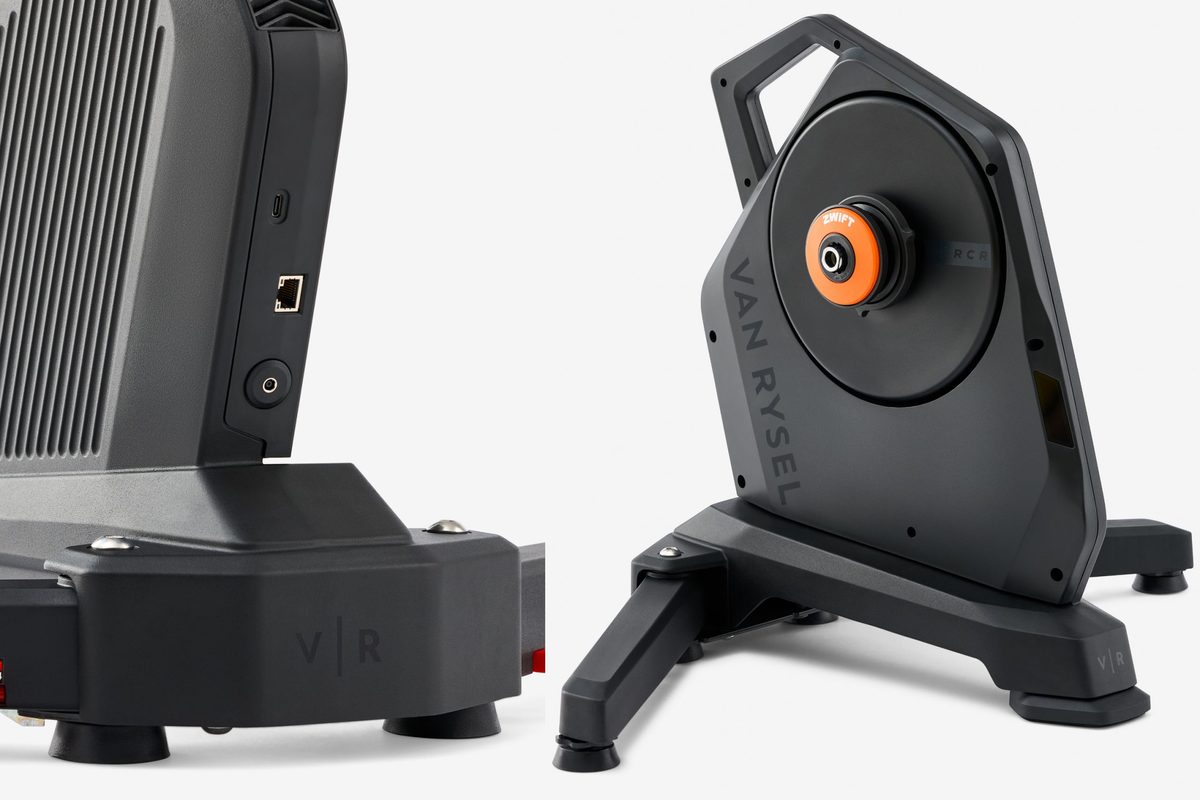Van Rysel has revealed the RCR and D500 smart trainers – two new models that look set to challenge the big names in indoor cycling.
Following the naming convention of its WorldTour-proven road bike, the RCR Pro, the RCR smart trainer is a new high-end model with a spec sheet that competes with rivals such as the Wahoo Kickr V6 and Tacx Neo 3M.
The D500, meanwhile, is a mid-range model targeting competitors such as the Wahoo Kickr Core 2, JetBlack Victory and Elite Rivo.
As we’ve come to expect of the French brand (which is owned by Decathlon), both trainers are priced competitively – at £749.99 / €798.99 for the RCR and £349.99 / €399.99 for the D500.
Buried in its spec, the RCR also has one standout feature that every smart trainer on the market ought to have, but few do – an Ethernet port.
RCR smart trainer
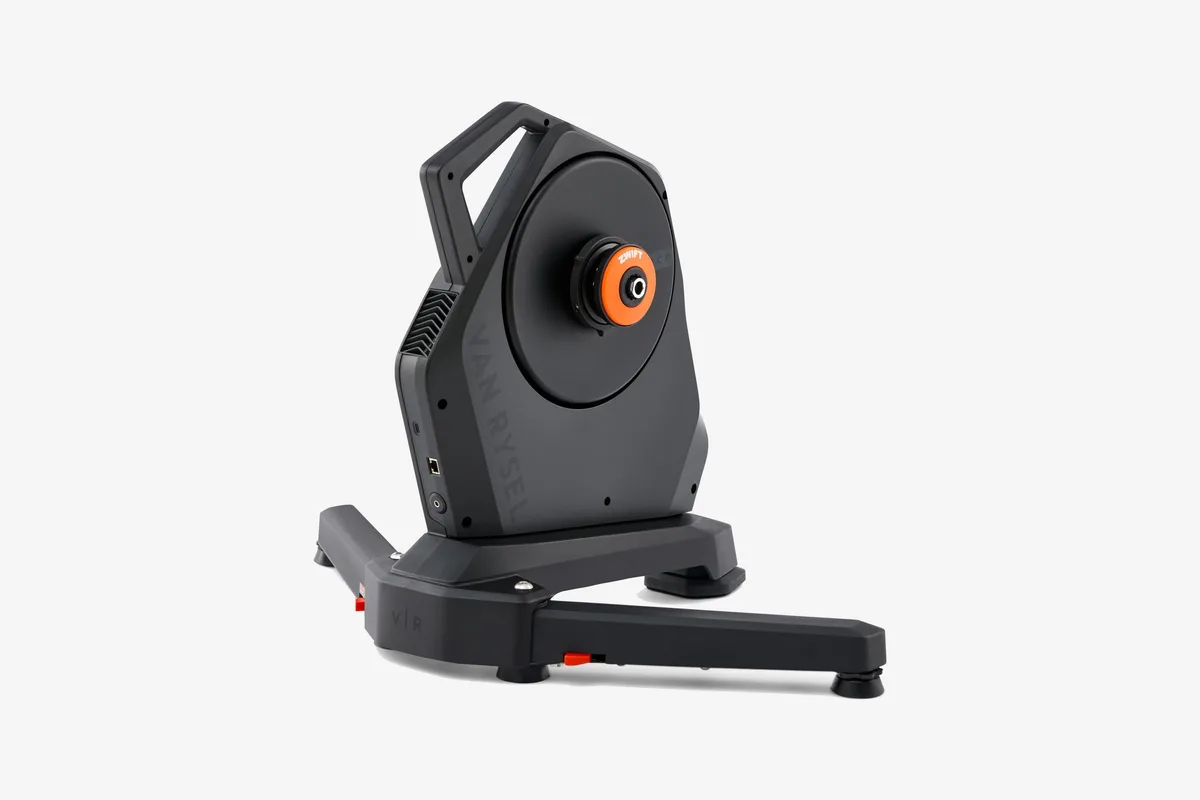 Van Rysel’s new RCR smart trainer replaces the D900. Van Rysel
Van Rysel’s new RCR smart trainer replaces the D900. Van Rysel
The RCR looks set to replace Van Rysel’s existing D900 smart trainer, which we tested in February 2024.
While that trainer featured impressive ride feel and specs for its relatively low price, it suffered some issues with data accuracy and lacked a few quality-of-life features present on its competitors (such as Race Mode, network connectivity and sensor bridging).
The new RCR trainer, though, promises +/- 1 per cent accuracy, with no calibration required, compared to +/- 2 per cent on the D900, as well as a higher maximum power of 2,800 watts.
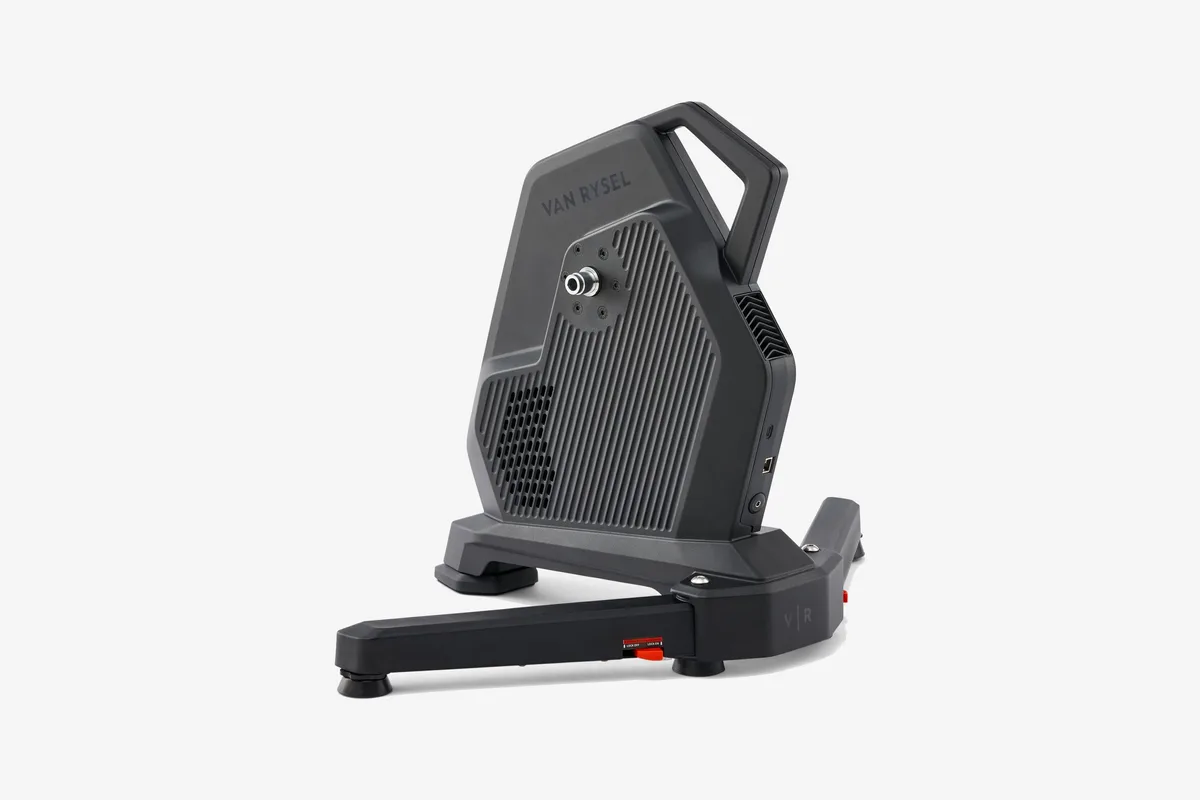 The RCR is Van Rysel’s new flagship smart trainer. Van Rysel
The RCR is Van Rysel’s new flagship smart trainer. Van Rysel
The flywheel weight isn’t specified, but Van Rysel says the RCR can simulate gradients of up to 27 per cent, if you’re that way inclined.
It also features a motor that can drive the flywheel on descents for a more realistic simulation of riding downhill.
The RCR features both Bluetooth and ANT+ connectivity, but lacks Wi-Fi – something that has become almost ubiquitous on the latest mid-level to high-end smart trainers.
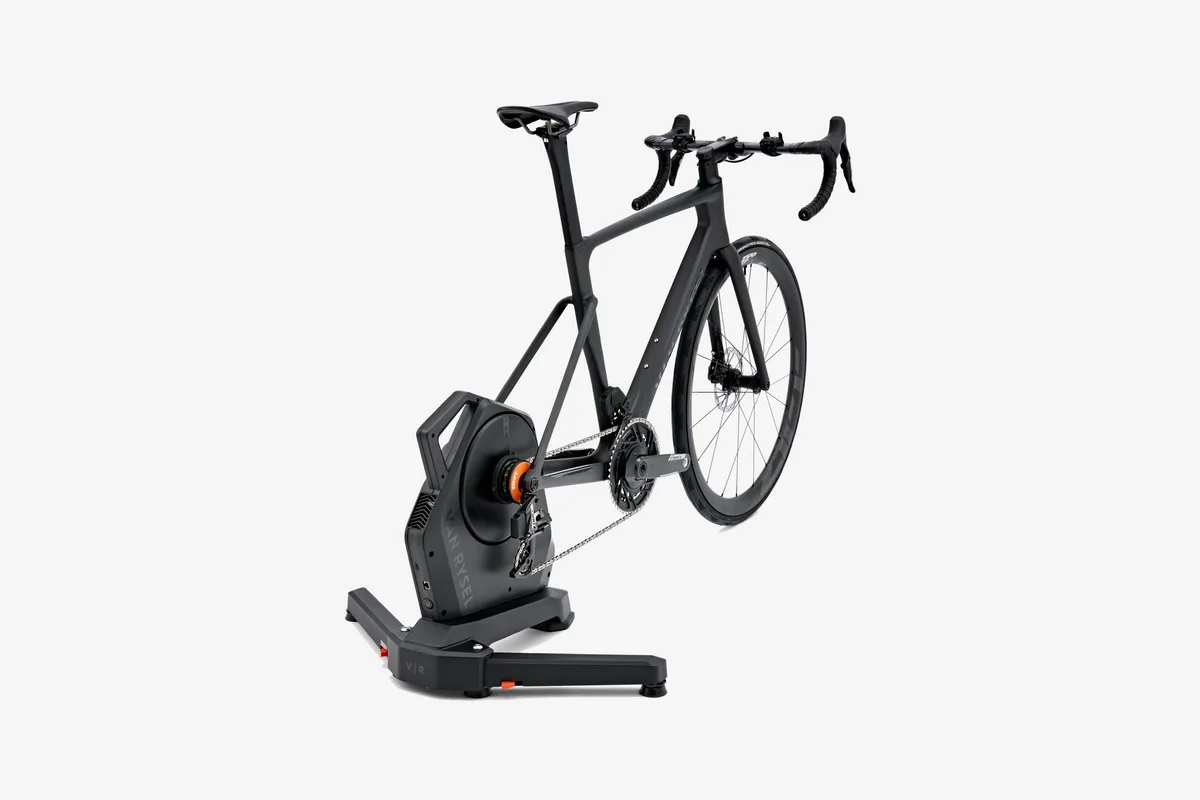 The RCR features a claimed accuracy rating of +/- 1 per cent and a maximum power of 2,800 watts. Van Rysel
The RCR features a claimed accuracy rating of +/- 1 per cent and a maximum power of 2,800 watts. Van Rysel
In place of Wi-Fi, though, it features a simple Ethernet port, which enables it to be hard-wired into your local network or connected directly to whatever smart device you’re using.
This, Van Rysel says, ensures “ultra-responsive, latency-free training that’s ideal for competition”.
This is a breath of fresh air compared to brands such as Wahoo and Tacx, which feature proprietary ports that require riders to purchase additional ‘dongles’ for their trainers should they wish to use a wired connection.
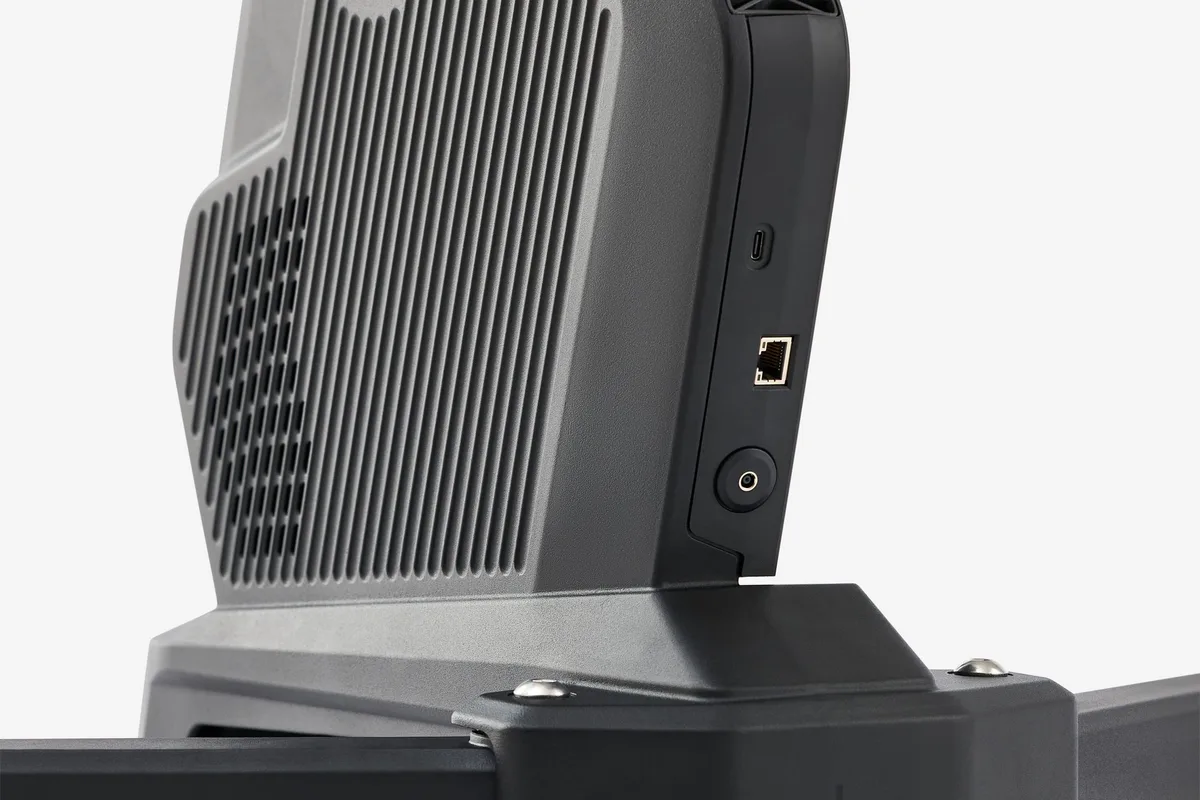 No proprietary ports here – the Van Rysel RCR features Ethernet and USB-C ports. Van Rysel
No proprietary ports here – the Van Rysel RCR features Ethernet and USB-C ports. Van Rysel
It also features a USB-C port that can be used to charge smart devices while you ride.
Good job Van Rysel.
Beyond this, the RCR trainer features folding legs and a handle to make it easier to stow away between uses. It costs £749.99 / €798.99.
This includes a Zwift Cog and Click V2 set, which makes the trainer ‘Zwift Ready’ and unlocks virtual shifting on the popular indoor cycling app, as well as compatibility with “almost any 8- to 12-speed bike”.
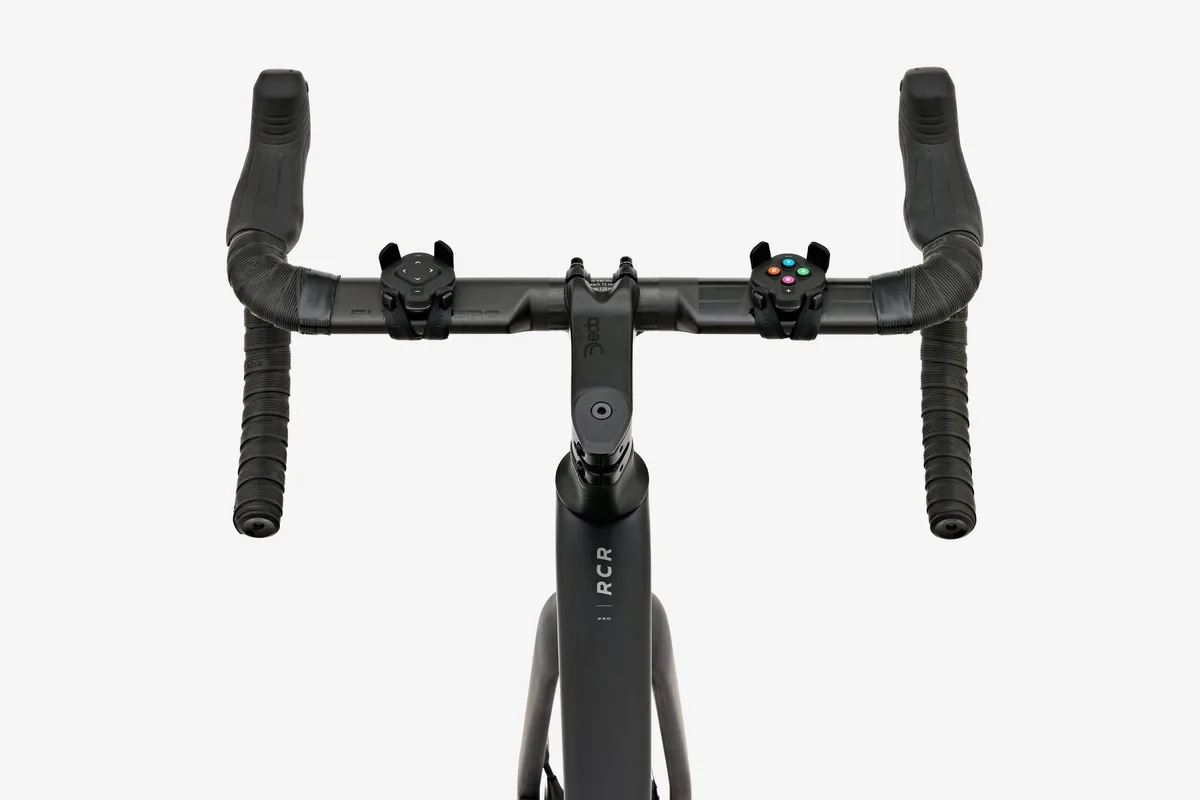 Both the RCR and D500 ship with a Zwift Cog installed and a set of Zwift Click V2 shifters. Van Rysel
Both the RCR and D500 ship with a Zwift Cog installed and a set of Zwift Click V2 shifters. Van Rysel
Van Rysel RCR smart trainer specification
Model: Van Rysel RCR
Price: £749.99 / €798.99
Maximum power: 2,800 watts
Maximum gradient: 27 per cent
Claimed power accuracy: +/- 1 per cent
Claimed noise level: 56dB at 25kph (measured at 1.5m)
Connectivity: Bluetooth, ANT+, Ethernet
D500
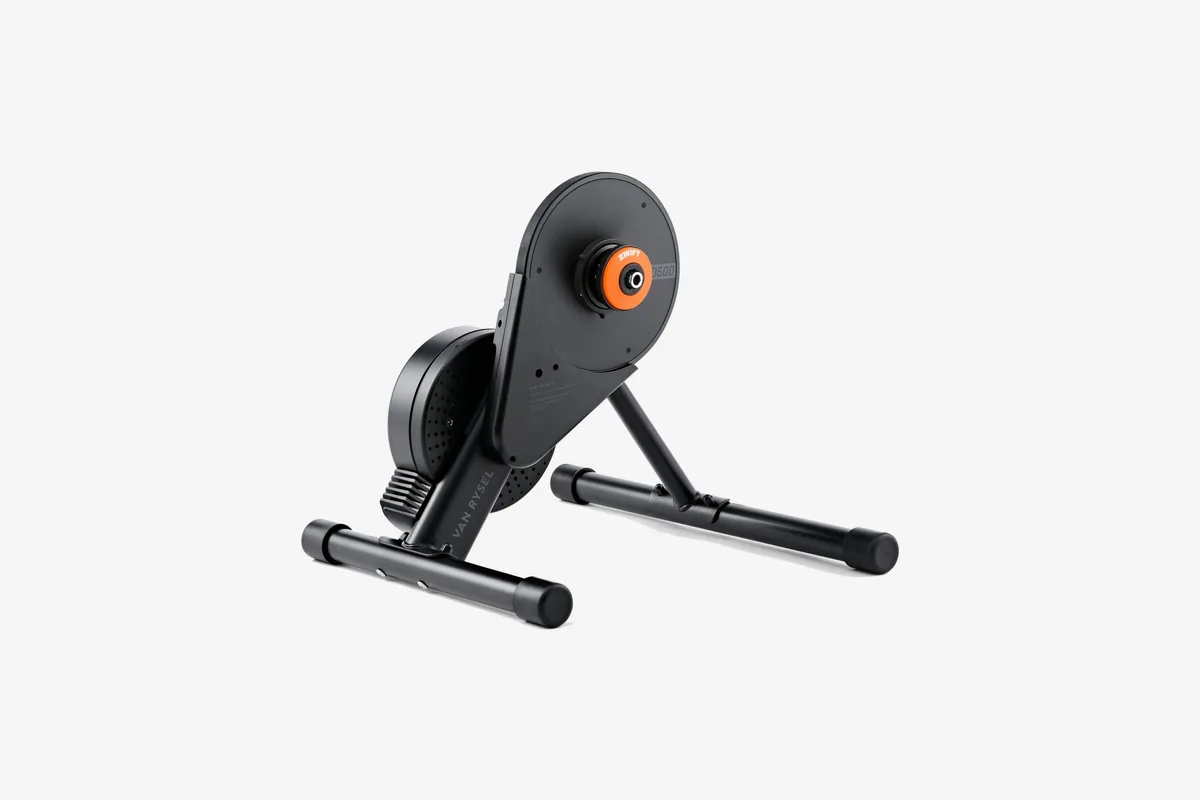 The D500 is a mid-range smart trainer. Van Rysel
The D500 is a mid-range smart trainer. Van Rysel
The D500, meanwhile, also looks like an exciting prospect.
Priced at £349.99 / €399.99 (also including the Zwift Cog and Click V2 bundle), the D500 replaces the existing ‘Interactive Turbo Trainer D500’, which was part of Van Rysel’s 2024 smart trainer range.
In contrast to that outgoing model, the new D500 features a Wahoo Kickr Core-inspired design akin to Van Rysel’s excellent budget trainer – the D100.
It features a 1,500W maximum power ceiling, can simulate gradients of up to 15 per cent and has a claimed power accuracy rating of +/- 2.5 per cent.
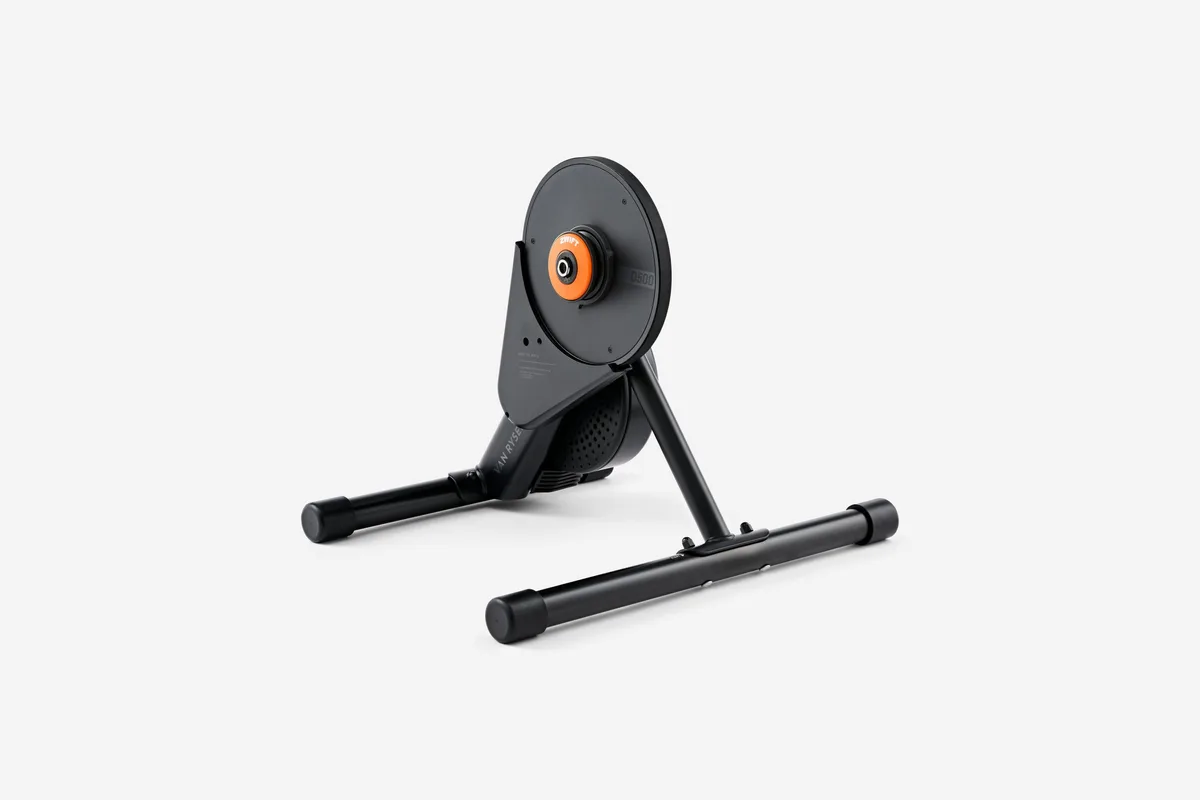 The D500 features 1,500W maximum power and is claimed to be accurate to +/- 2.5 per cent. Van Rysel
The D500 features 1,500W maximum power and is claimed to be accurate to +/- 2.5 per cent. Van Rysel
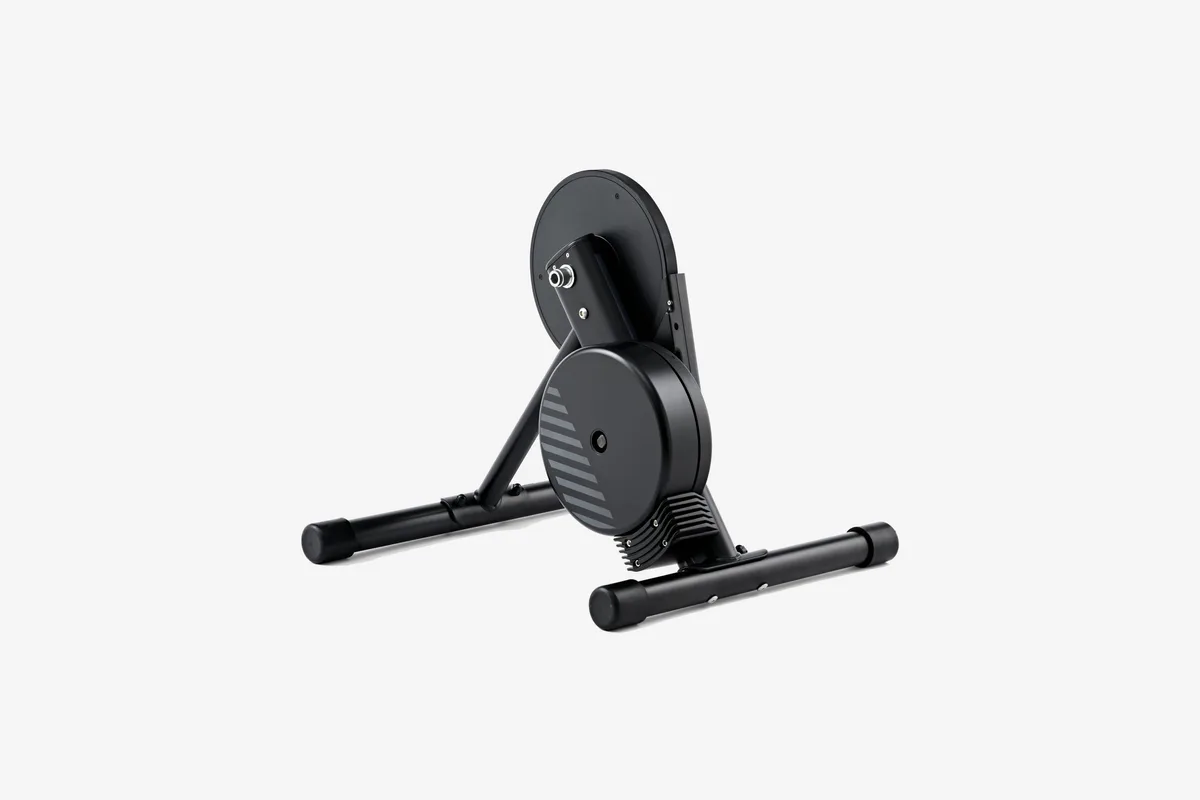 The D500 doesn’t offer Wi-Fi connectivity or an Ethernet port, but is cheaper than the competition. Van Rysel
The D500 doesn’t offer Wi-Fi connectivity or an Ethernet port, but is cheaper than the competition. Van Rysel
Assuming it performs as claimed, those specs should be plenty for all but the most powerful cyclists to enjoy the full range of joy indoor cycling can offer (or not, if you’d prefer your indoor training to be boring).
Unlike the Wahoo Kickr Core 2, JetBlack Victory and Elite Rivo, the Van Rysel D500 lacks Wi-Fi connectivity, and only features Bluetooth and ANT+.
It does, however, undercut all three of those trainers on price, by £50 to £150 (depending on the model in question).
The D500 sadly lacks the Ethernet port featured on the RCR trainer, and it remains to be seen whether it offers Race Mode over Bluetooth, as some smart trainers do.
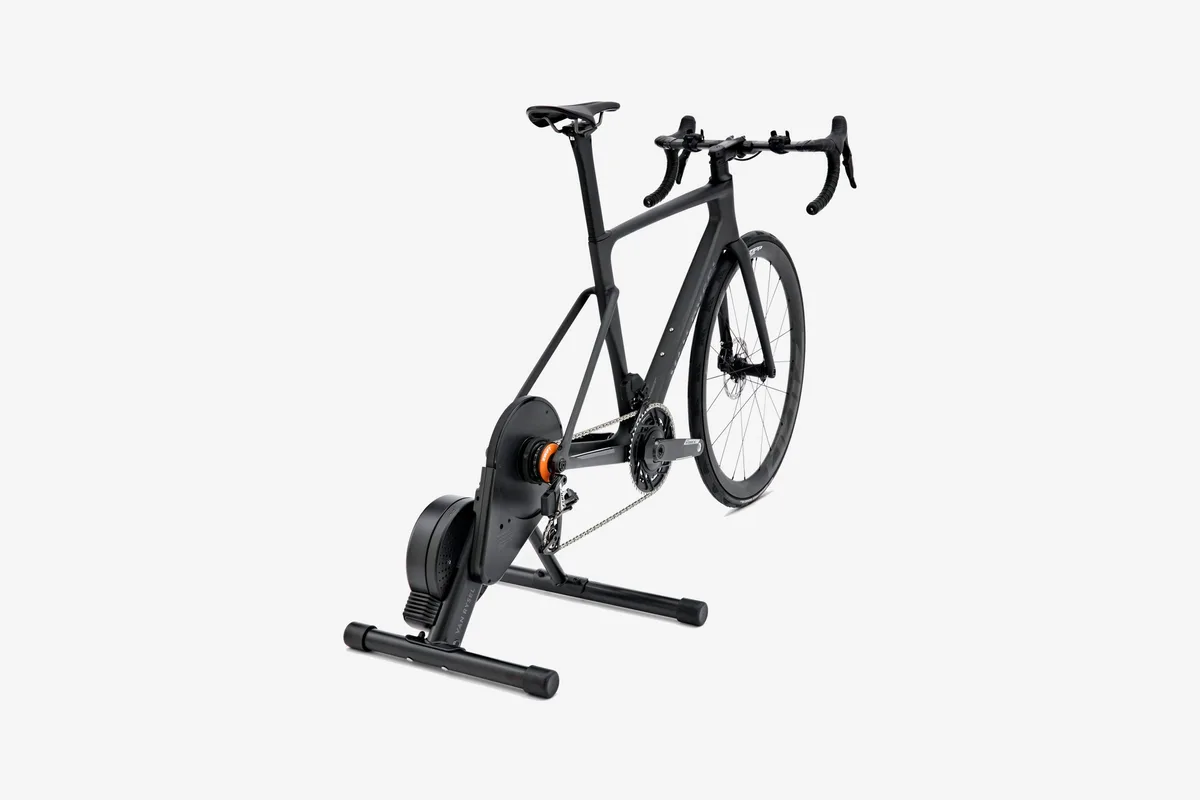 The D500 slots in above the budget D100 in Van Rysel’s smart trainer range. Van Rysel
The D500 slots in above the budget D100 in Van Rysel’s smart trainer range. Van Rysel
Van Rysel D500 smart trainer specification
Model: Van Rysel D500
Price: £349.99 / €399.99
Maximum power: 1,500 watts
Maximum gradient: 15 per cent
Claimed power accuracy: +/- 2.5 per cent
Claimed noise levels: 56dB at 25kph (measured at 1.5m)
Connectivity: Bluetooth, ANT+

